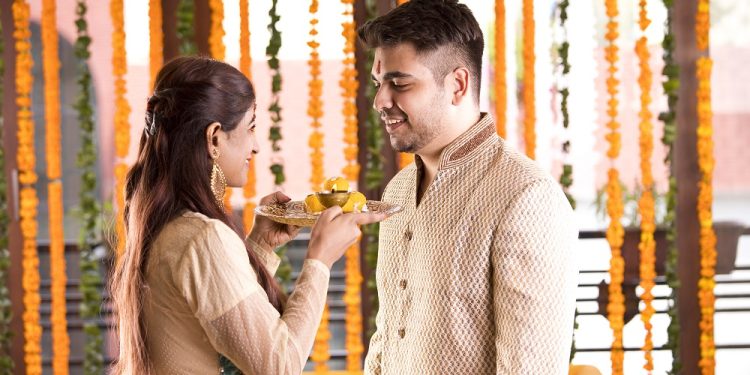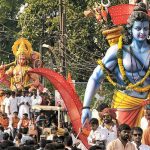
Bhai Dooj
Bhai Dooj is a Hindu festival observed on the second lunar day of Shukla Paksha in the Vikrami Calendar (also known as Vikram Samvat) or in the Shalivahan Shaka calendar month known as Kartika. This places it between October and November on the Gregorian calendar.
It should also be noted that this holiday is called by different names in various places. In Northern India, it is known as Bhai Dooj, but in Nepal, it is known as Bhai Tika, in Bengal as Bhai Phonta, and in Western Odisha as Bhai Jiuntia. It is also known as Bhatri Ditya and Bhatru Dviteeya in Telangana and Andhra Pradesh, respectively.
The Symbolic Meaning of Bhai Dooj
The one key tenet that lies at the heart of Bhai Dooj is the celebration of the love between a brother and a sister. Although Hinduism has holidays dedicated to married couples and the bond shared by parents and children, this holiday celebrates the unconditional love between siblings and is dedicated to strengthening those bonds.
The Origin of Bhai Dooj
This Hindu festival can be traced back to several different legends and stories passed down through the millennia. According to one legend, Lord Krishna visited his sister Subhadra after he killed the demon Narakasur. She received him warmly, made the occasion special by feeding him a grand meal, giving him treats, and adorning her home with flowers. She also applied a ceremonial tilak on his forehead. This forms the basis for the holiday and is why it has been celebrated for so long.
How Bhai Dooj Is Observed
On the day of the festival, sisters invite their brothers to their homes to enjoy a meal featuring their favorite foods. These meals are usually all-out feasts that include several main courses, sides, and even dessert.
Although ceremonies during the day may vary from culture to culture, it usually involves the sister performing Aarti — a puja that offers light — for their brother. The sisters also apply a red tika to their brother’s forehead. This tika ceremony signifies the sister’s wishes for her brother’s long and prosperous life. The brother will then bless their sister and may give them cash and/or gifts.
Unlike other Hindu festivals, this one is not based on scripture, so people may observe it in different ways and with different rituals. That is why it can be difficult to attribute specific pujas or rituals to this holiday.
In modern times, it has also become customary for siblings to exchange greeting cards. A sizable greeting card industry has developed around this holiday, and it is now common for many people celebrating to give their brother or sister a greeting card on this day. Many businesses have also capitalized on the popularity of this holiday by offering special Bhai Dooj gifts.








